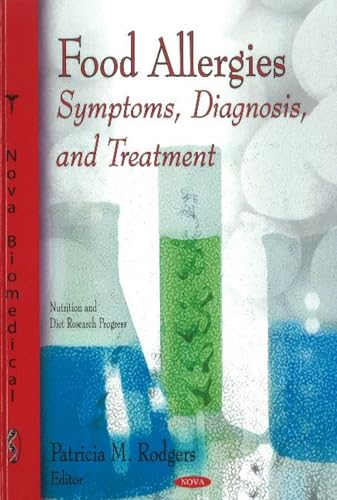
If you observe that your furry companion is refusing meals and exhibiting unusual stool characteristics, immediate veterinary consultation is paramount. This behaviour may indicate underlying health issues that require prompt attention. Your pet’s wellbeing hinges on swift intervention.
Common causes for appetite loss alongside abnormal bowel movements include gastrointestinal infections, parasites, or dietary indiscretions. In my experience, a sudden change in food or the ingestion of foreign objects led to similar symptoms in my own canine. Always assess recent dietary changes or potential toxins in their environment.
Monitor additional signs such as lethargy, vomiting, or excessive thirst. These indicators can provide valuable insight to the veterinarian. Remember, timely action can be life-saving. Don’t hesitate; your pet relies on you to identify when something is amiss.
In my case, a quick visit to the vet revealed a simple case of dietary upset, but it could have been far more serious. Keeping a close eye on your companion’s behaviour and physical condition can make all the difference.
Identifying Symptoms of Gastrointestinal Issues in Dogs
Observe your pet closely for specific signs that indicate gastrointestinal distress. Common indicators include a sudden change in behaviour, such as lethargy or increased restlessness. Pay attention to appetite shifts; a refusal to consume food can be alarming. Monitor for vomiting or regurgitation, which may occur alongside changes in stool consistency or colour.
Examine waste for any unusual characteristics. Dark, tarry stools or bright red streaks suggest potential bleeding within the digestive tract. Additionally, diarrhoea, especially if persistent, warrants immediate attention. Your companion may also exhibit signs of abdominal discomfort, such as whining, excessive licking of the lips, or a tense belly upon touch.
If you notice any of these symptoms, consult a veterinarian promptly. Early diagnosis is key to addressing underlying health issues effectively. Keep a record of observed behaviours and any changes in routine to provide your vet with valuable insights during your visit.
Common Causes of Appetite Loss and Blood in Stool
Gastrointestinal disturbances can stem from several issues. Parasitic infections, such as worms, often lead to decreased interest in food and unusual stool characteristics. Regular deworming is essential for prevention and treatment.
Ingestion of foreign objects is another significant concern. Items like toys, bones, or garbage can cause blockages or injuries, resulting in discomfort and bloody stools. If you suspect this, a veterinary visit is necessary for diagnosis and possible surgical intervention.
Dietary Factors
Dietary indiscretion, such as consuming spoiled food or sudden diet changes, can upset digestive health. Transitioning to a new food should be gradual. For those with sensitive stomachs, trying options like best wet dog food for 8 years may provide relief and encourage eating.
Medical Conditions
Underlying health issues, including infections, inflammatory bowel disease, or tumours, can also cause these symptoms. Regular check-ups are vital for early detection and management of such conditions. Always consult a veterinarian if these symptoms arise to ensure proper care and treatment.
When to Seek Veterinary Help for Your Canine Companion
If your furry friend exhibits signs of distress, immediate veterinary assistance is necessary. Here are specific situations warranting a trip to the vet:
- Prolonged refusal of food for more than 24 hours.
- Presence of fresh red blood or dark, tar-like substances in the stool.
- Severe lethargy or difficulty in movement.
- Vomiting, particularly if it contains blood or resembles coffee grounds.
- Persistent abdominal pain, indicated by whining or sensitivity when touched.
- Excessive thirst or urination changes, including accidents indoors.
- Signs of dehydration, such as dry gums or loss of skin elasticity.
- Sudden weight loss over a short period.
Before heading to the clinic, gather any relevant information, such as changes in diet, environment, or behaviour. This will aid the vet in diagnosing the issue effectively.
Never hesitate to reach out for help. Timely intervention can make a significant difference in recovery outcomes. I recall a time when my own pet displayed similar symptoms; prompt action saved her from a potentially serious condition. Trust your instincts; if something feels off, seek professional advice.
Home Care Tips for Pets with Digestive Issues
Maintain hydration by ensuring fresh water is always available. Dehydration can exacerbate gastrointestinal problems, so encourage regular drinking. You might try offering ice cubes or adding water to dry kibble to entice them.
Adjust their diet gradually. Introduce easily digestible foods, such as boiled chicken and rice, in small portions. Avoid introducing too many new ingredients at once, as this can lead to further digestive distress.
Monitor Feeding Habits
Keep a close eye on portion sizes and feeding schedules. Regular meal times can help establish a routine that promotes better digestion. If they refuse food, try warming it slightly or adding a small amount of low-sodium broth for flavour.
Gentle Exercise
Encourage mild activity, like short walks. Movement aids digestion and can help alleviate discomfort. Avoid strenuous exercise until symptoms improve, as this can lead to additional stress on their system.






